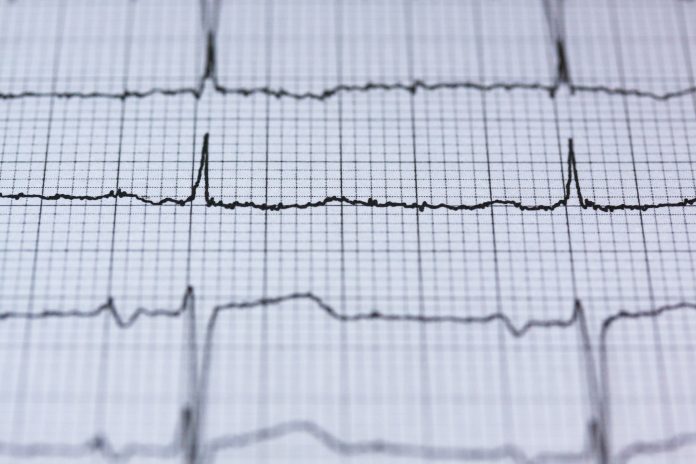Before you dive into this article, consider that your heart and brain are close friends. They even share close health bonds and have long ago struck a deal of heart-healthy equating to brain healthy. Research has also started to uncover this connection, where the heart shoulders significant responsibility for ensuring brain’s health.
The relation is even tragic. If the heart doesn’t take care of its fitness, the brain will suffer the consequences. So, we can even consider it a fellowship that borrows a few aspects from Romeo and Juliet. That leaves us wondering about the association between the two organs and the how and why part. Here is a look into the shared interdependence of the heart and the brain:
Research supports the claim
A recent study examined the bond between heart health and brain health. Published in the Journal of the American Heart Association, the research deliberated on the Life’s Simple 7. These are the health metrics developed by the American Heart Association are the key factors in defining a healthy heart.
The list includes an active lifestyle, ideal weight, healthy eating, low blood sugar, regulated blood pressure, monitored cholesterol, and zero tobacco. Using these metrics, researchers spelled the cardiovascular health of the participants. The study concluded that optimal cardiovascular health, as per the Simple 7 parameter, yields a reduced cognitive decline.
The study’s lead author summed up the findings as, “Achieving the health metrics of Life’s Simple 7 is associated with a reduced risk of strokes and heart attacks, even among the elderly. And the finding that they may also impact cognitive, or brain function underscores the importance of measuring, monitoring and controlling these seven factors by patients and physicians.”
Another report also tested the impact of following the Simple 7 at an early age on the brain. It tracked the participants for 30 years. The research found that high scores on the Simple 7 metrics were linked to a large brain volume. A large brain volume, on the other hand, is directly related to better health.
How does a healthy heart lead to a healthy brain?
Dr. Steven Greenberg, professor of neurology at Harvard-affiliated Massachusetts General Hospital, gives words to the picture. He explained, “Everything we think of as being unhealthy for your blood vessels and heart has also been linked to dementia.”
There are several factors that surface from a heart kept unwell like stiff arteries, high blood pressures, and high cholesterol. These very factors also pose as risk factors for disturbed brain health in the form of dementia and Alzheimer’s disease. For instance, 1 in 10 ten survivors in stroke is predicted to develop dementia within one year of their stroke.
Likewise, blockages in the blood vessels can contribute subtle injuries to the brain. Resulting silent strokes have the odds in their favor by 10-20 times as compared to overt strokes. The microscopic damage also enhances the risk of dementia. A build-up of plaque in the blood vessels may also contribute to the risk of Alzheimer’s.
Dr. Albert Hofman, chairman of the department of epidemiology at the Harvard T.H. Chan School of Public Health further summarizes the link. He confirms, “An estimated one-third of all cases of dementia, including those identified as Alzheimer’s, can be attributed to vascular factors.”
Next steps
According to the Center for Disease Control and Prevention, heart diseases take the lives of 610,000 people annually. They are also the chief cause of death in the US. At the same time, Alzheimer’s victimized 5.5 million Americans as of 2017. Every 66 seconds, someone becomes the new victim of this disease.
Of course, nobody wants to join these ranks anytime soon. Since prevention is better than cure or no cure at all, it is better to work on your heart health. Here are some essential measures to take into your immediate consideration:
- Eat healthily
Gracing your diet chart with healthy foods is a must. It is the initial step to several efforts you put in for a hale and hearty heart like reducing cholesterol. Therefore, make sure to add fruits and vegetables to your diet.
You can also follow diets that are specifically tailored for boosting cardiovascular health such as the Mediterranean diet. As an add-on, include foods that improve your brain power.
- Quit smoking
Tobacco is a big red flag for your health. Smoking has a jumble of harmful effects on the heart. It raises the risk of cardiovascular diseases and damages arterial lining as well. The latter is a precursor to heart attack, stroke, and angina. Heart diseases caused by smoking add to 20% of deaths. Even more shocking is that 35,000 non-smokers die of heart diseases caused by passive smoking. It’s only better to separate your ways from tobacco at your earliest.
- Make the necessary lifestyle changes
Agility is the key to a cheerful heart. Lazy muscles are not going to get you anywhere to an active lifestyle. With its various benefits, physical activity parallels healthy cardiovascular health. Add exercise to your daily routine. It accelerates the heartbeat that pumps blood faster, providing greater oxygen to all the body along with the brain.
- Control your blood pressure
A high blood pressure cripples your health’s foundation. It launches a domino effect and culminates in heart attack and stroke. 1 in 3 adults in the US has high blood pressure. It is only wise to regulate your blood pressure within a healthful range. You will be able to save yourself from the multiple health threats exhibited by hypertension.
- Reduce weight
If you are among the 160 million Americans are close to being overweight or obese, then you should work pronto on losing weight. There is no pride in carrying the excess fat reserves. The additional pounds increase triglycerides and blood cholesterol. These are linked with a mushroomed risk of stroke. Obesity also contributes to hypertension.
Along with this, keep your blood sugar and cholesterol in check too. As you pursue these steps, you’ll be able to reap both a hale heart and a fit brain.







